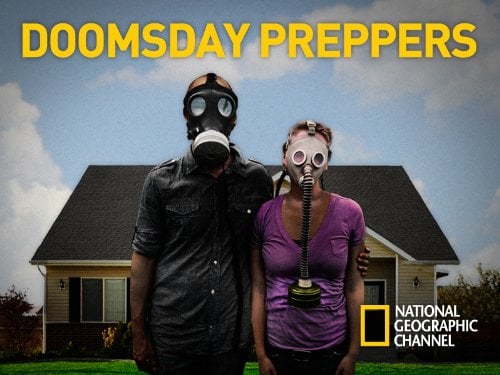You have /5 articles left.
Sign up for a free account or log in.

For reasons that I don’t understand, my home-for-the summer college daughters have taken to watching episodes of National Geographic’s Doomsday Preppers. Sometimes, I watch with them.
The show, which ran from 2011 to 2014, chronicles the efforts of ordinary Americans to prep for catastrophic events. These are individuals and families who are fully convinced of the fragility of civilization. They anticipate the coming of total financial collapse, earthquakes, floods, food shortages, blackouts, nuclear attack, pandemics, terrorism, civil unrest, government overreach and liberals. The show then scores each prepper family on a 100-point scale, with 20 points each for food, water, shelter, security and an x-factor. (Such as living full-time in an RV or having one’s own backyard bomb shelter.)
Doomsday Preppers was not a show about making reasonable preparations for extreme weather or power outages. We should probably all be aware of the Red Cross recommendations for emergency preparedness.
The families profiled in Doomsday Preppers build their lives around prepping, as they are convinced that collapse is imminent. The show is disturbing to watch precisely because the life of a doomsday prepper seems to revolve around fear. The prepping families seem to be trading a current quality of life for the potential of survival for when a disaster (inevitably) comes.
I’m not a doomsday prepper. But I may be a career prepper.
Let me explain. Work, for me, has always felt insecure.
Part of my belief that career catastrophe is always around the corner comes from spending much of my academic career in technology. Technology is a boom-and-bust industry. I’ve lived through more than a few waves of frenzied hiring followed by gutting rounds of layoffs.
So far, I’ve always managed to escape the cyclical reductions in force. But I think that this owes more to luck than to skill.
There are days when the entire higher education edifice feels to be on shaky ground. Are any of us any more hardworking or smarter than our colleagues at tuition-dependent institutions that are closing their doors, downsizing or merging?
What is the difference between us and our academic colleagues in Alaska? Save for our good fortune to not live in a place that seems to have decided that public higher education is an unaffordable luxury.
Always expecting the career worst to come at any moment, I’ve tried (in true prepper fashion) to be prepared.
While I don’t have a bunker in my backyard, I have developed academic career plans B, C, D and E -- should plan A not work out.
Preparing for academic career resilience is probably a smart thing to do for anyone lacking tenure at a nonwealthy institution. We underestimate the amount of luck that is involved in professional success, while continually overestimating our own value and importance.
Still, sometimes I wonder if I’m getting the balance right. Spending less mental energy preparing for the worst would free up that energy for productive (academic) work.
The career risk of public writing and scholarship for nonfaculty academics, particularly those who write critically about the postsecondary system, seems particularly high. A tendency to overworry (or worry appropriately) about one’s kids’ tuition payments and the mortgage is not conducive to critical scholarship among the untenured.
National Geographic should go back and interview the preppers featured on Doomsday Preppers. What do they think now that society still has not collapsed? I imagine that very few will say, “Well, I got that wrong.” Instead, they will likely talk about how collapse is still around the corner -- and they were only wrong in timing.
For those who are reaching retirement or retiring from nontenured academic jobs, how much time did you spend worrying about your career? Did any of this worry ever help?
How do you think about professional resiliency?




